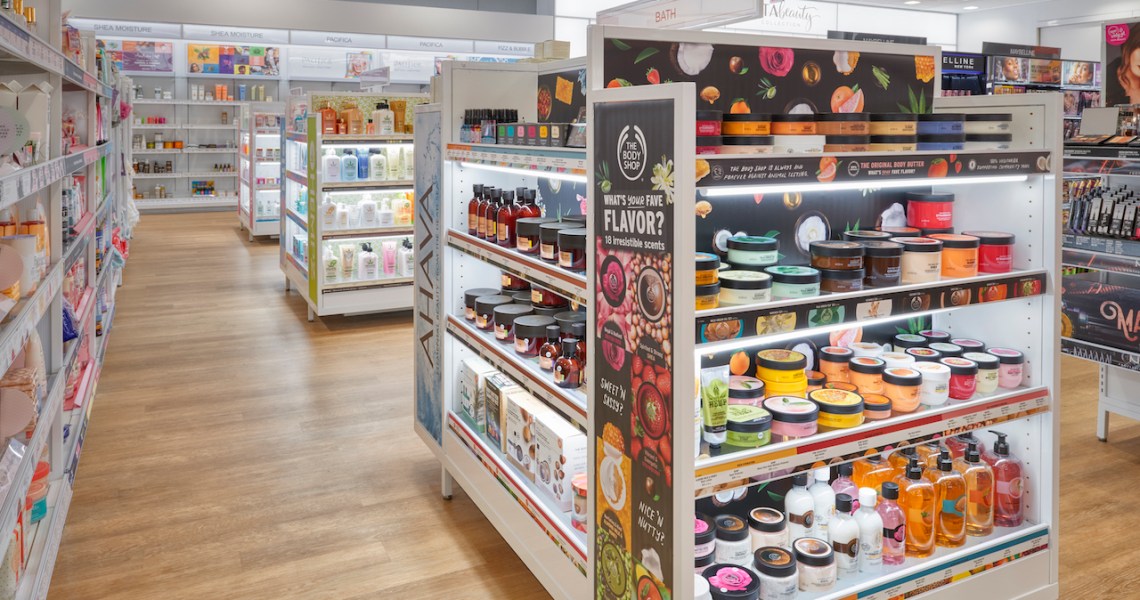On Thursday, Ulta Beauty reported a strong first quarter of growth in 2023, but that was tinged by anxieties around store theft and consumers’ tightening discretionary budgets.
According to its earnings press release, Ulta Beauty net sales increased 12.3% year-over-year to $2.6 billion, owed to increased comparable sales, strong new store performance and growth in other revenue, compared to the first quarter of fiscal 2022. Cosmetics accounted for 44% of first-quarter net sales, unchanged from the year prior. Skin care was 19%, an increase from 18% last year. Hair-care and styling-tools sales declined by 2 points to make up 18% of sales, while fragrance remained unchanged at 12%. In-store beauty services grew by 1 point to account for 4% of sales, while accessories sales remained unchanged at 3% of sales.
Brands that received special callouts across categories included The Ordinary, Dior Beauty, Bubble skin care, Hero Cosmetics, Fenty and Valentino fragrances.
“The year is off to a positive start, as the Ulta Beauty team delivered revenue, operating margin and diluted EPS consistent with our internal expectations. Store traffic remained healthy, member growth showed continued strength, we delivered growth across key categories, and we strengthened engagement with the Ulta Beauty brand,” said Dave Kimbell, CEO of Ulta Beauty, during the earnings call.
Real estate activity in the first quarter of fiscal 2023 included five new stores located in Boulder, Colo.; Denton, Tex.; Seattle, Wash.; Surprise, Ariz. and Warrensville Heights, Ohio. In addition, the Company closed one store, relocated one store and remodeled two stores. At the end of the first quarter of fiscal 2023, the company was operating 1,359 stores totaling 14.2 million square feet.
Notably, product theft received great attention during the call, with Kimbell claiming that it was resulting in “inventory shrink” on store shelves.
“Organized retail crime is an increasingly concerning challenge especially as we’ve seen a rise in violence and aggression during these incidents. Our first priority is the safety and well-being of our associates and our guests,” said Kimbell. Ulta Beauty is investing in new store fixtures to prevent theft, including security tags on products and partitions, employee training, store support, increase staffing and armed security in select locations.
Such incidents are becoming increasingly common. It was recently found that Target has removed several Pride products from its stores, or moved to them other areas, out of concern for the safety of its store employees. Other retailers outside of beauty, such as Starbucks, have announced plans to close stores, as a result of hostile work environments.
The uncertain economy and the pressures on discretionary spending were also noted. Though Ulta Beauty store traffic grew by double-digits, the average ticket or basket size in-store decreased by 1.5%. The decline in average ticket value reflected lower units per transaction, which offset higher average selling price. And in addition to greater pressure from inventory shrinkage, Ulta Beauty’s gross margin was negatively impacted by lower merchandise margins, primarily due to increased sales promotions and category mix shifts, offsetting any benefit from brand price increases that occurred in the past year. As a percentage of net sales, Ulta’s gross profit decreased to 40%, compared to 40.1% in the first quarter of fiscal 2022, but overall still increased 12.1% year-over-year to $1.1 billion. And the company’s mass beauty sales grew faster than prestige, Kimbell said.
“We entered 2023 anticipating that the unprecedented growth in the beauty category would moderate and the promotional environment would increase,” said Scott Settersten, CFO of Ulta Beauty, on the earnings calls. “These trends materialized in the first quarter and are reflected in our results.”
But despite macroeconomic concerns, Ulta Beauty is still growing in more ways than one. For example, it now has 41 million members in its rewards program, a 9% growth year-over-year. This was driven by new members, reactivations and positive retention. And spend-per-member increased by an undisclosed amount due to more store visits and the growth of “elite” Platinum and Diamond membership tiers. Joining Ulta Beauty Rewards is free, but the Platinum tier requires a minimum $500 annual spend, and Diamond requires $1,200 per year. Membership in these two tiers increased by 30% year-over-year, said Kimbell.
Kimbell said that Ulta Beauty is redefining the definition of beauty through its assortment of products. Its first quarter included the launch of Beautycounter and Natasha Denona makeup. Ulta Beauty also launched luxury beauty within 200 stores and on UltaBeauty.com, with brands like Dior, Hourglass and Chanel.




